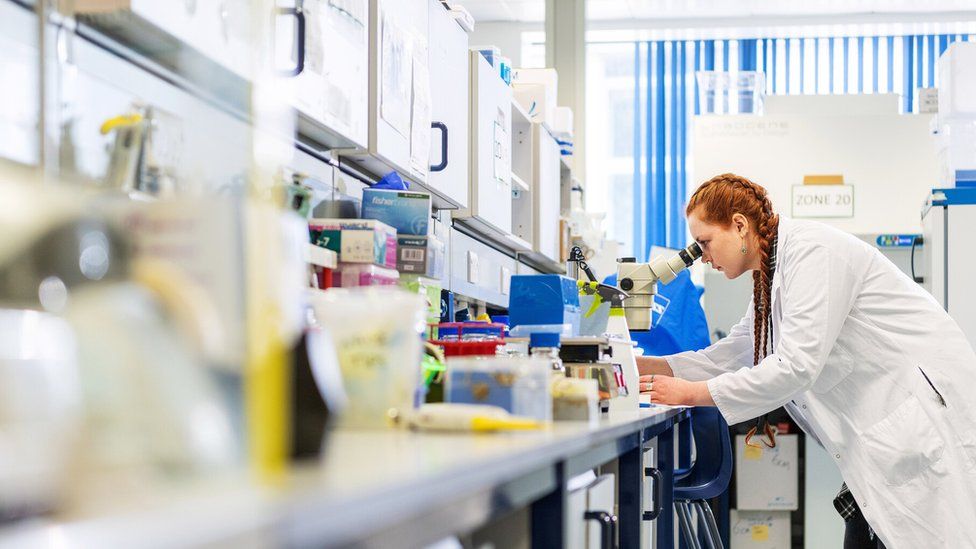Funding for new biomedical research centre in Exeter
- Published

New funding has been announced for the South West's first biomedical research centre.
The centre in Exeter has received £15m from the National Institute for Health and Care Research (NIHR) to help it develop treatments.
It is due to be run by a collaboration of health trusts across Cornwall, Devon and Somerset.
The woman who will direct it said it aims to "turn the latest research into tangible benefits for patients".
Sallie Lamb, pro-vice chancellor of the University of Exeter's Faculty of Health and Life Sciences, said: "The region is home to a greater proportion of older adults than anywhere else in the UK, providing a snapshot of the major challenges the NHS will face in the future.
"It offers a ready-made setting for world-class research to improve treatment and care in areas that need it most."
The centre does not have a physical headquarters, but much of the work will be based at the Research, Innovation, Learning and Development Centre on the Royal Devon Hospital site in Exeter.
It will support clinical trials and take effective treatments in to practical usage.
'A real difference'
The partnership is led by the University of Exeter and the Royal Devon University Healthcare NHS Foundation Trust (RDU), and includes the Royal Cornwall Hospitals NHS Trust, Devon Partnership NHS Trust, Cornwall Partnership NHS Foundation Trust, and Somerset NHS Foundation Trust, working with St George's University Hospitals NHS Foundation Trust.
Suzanne Tracey, chief executive officer at RDU said: "Working in collaboration with our patients and clinical teams, this funding will enable our medical research leaders to rapidly bring programmes of scientific discovery to life, better benefitting our local communities through delivering the innovations that will make a real difference to our patients."
The focus includes finding and testing new, better drugs that prevent and treat major brain conditions in older adults such as dementia and Parkinson's disease.
It will also look at new ways to help older people to recover from illness or manage their long-term conditions like dementia and arthritis.
Improving diagnosis and treatment of diabetes and using genetics to improve diagnosis of rare illnesses in children and rare cancers are also among the research themes.
The NIHR Exeter Biomedical Research Centre is one of 20 across the UK.
Follow BBC News South West on Twitter, Facebook and Instagram. Send your story ideas to spotlight@bbc.co.uk